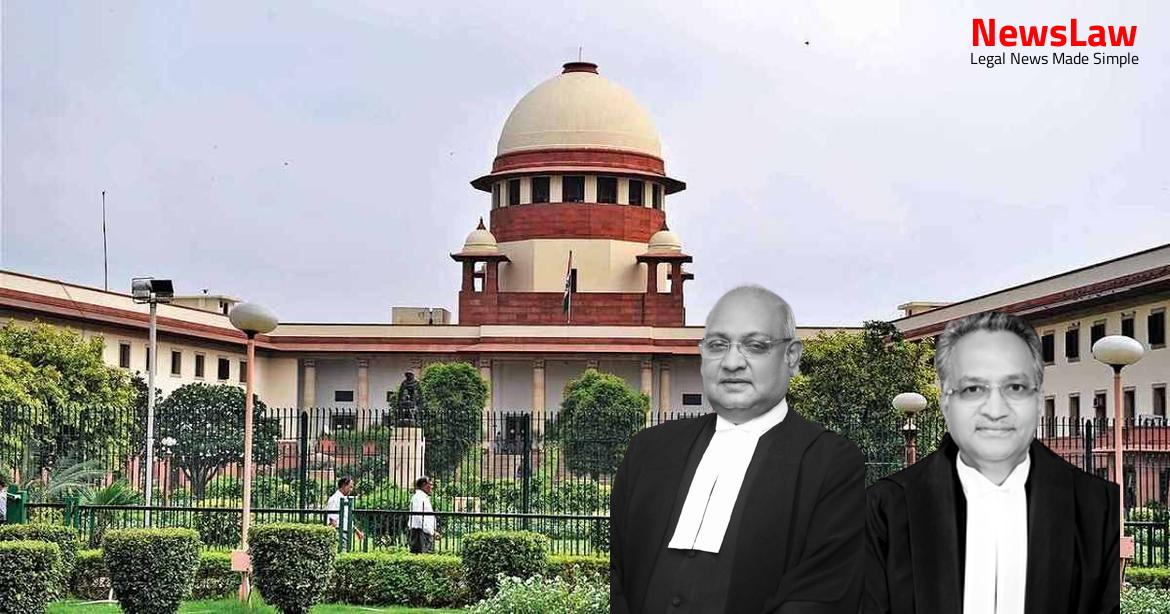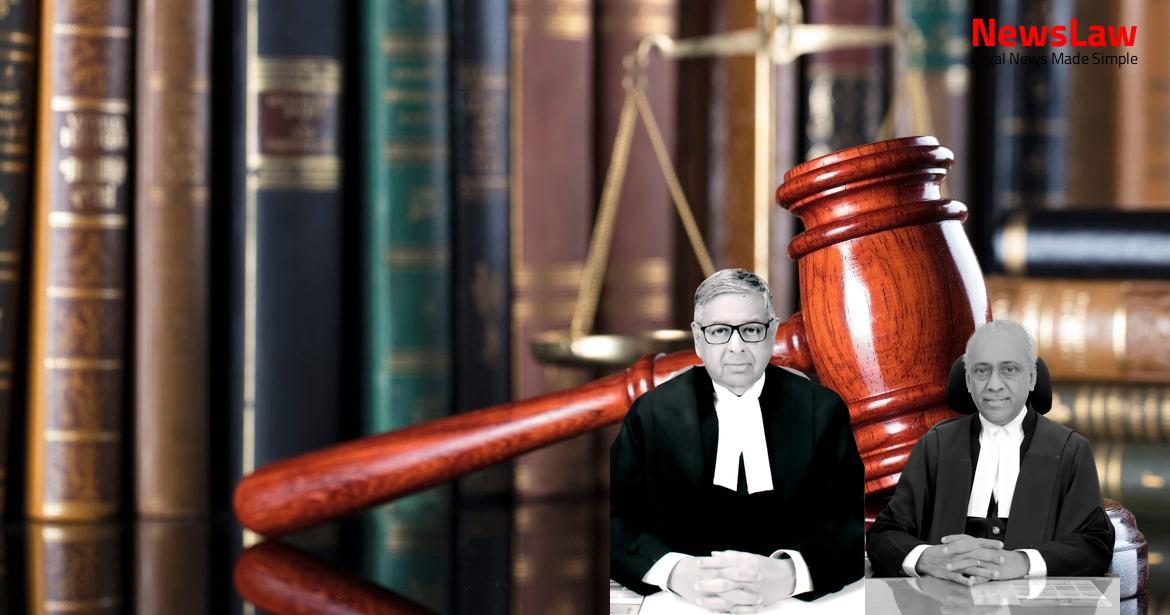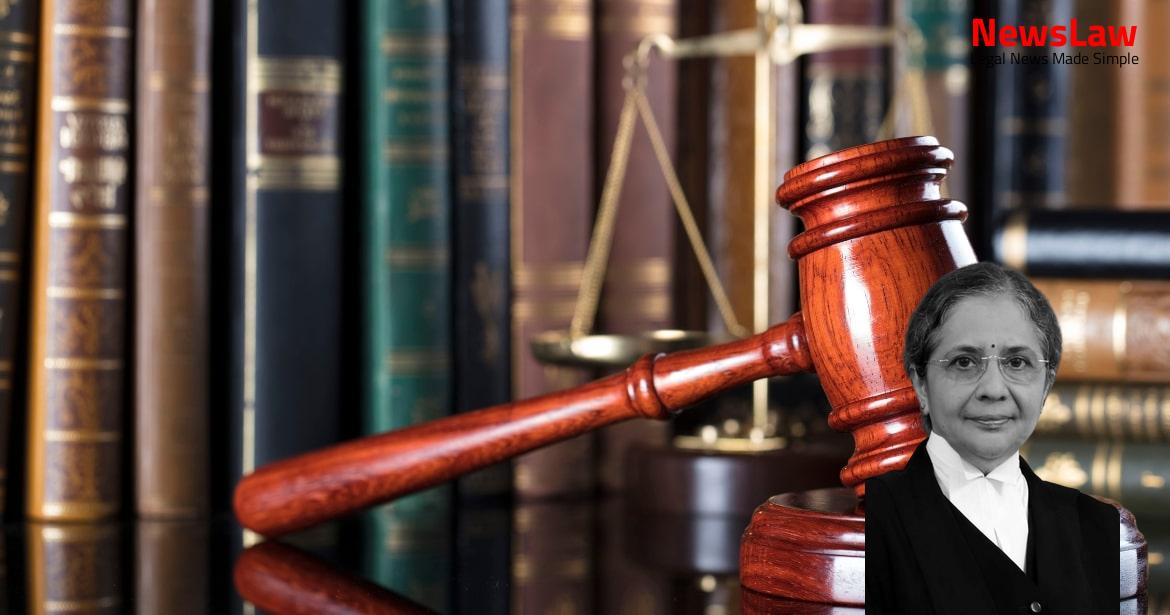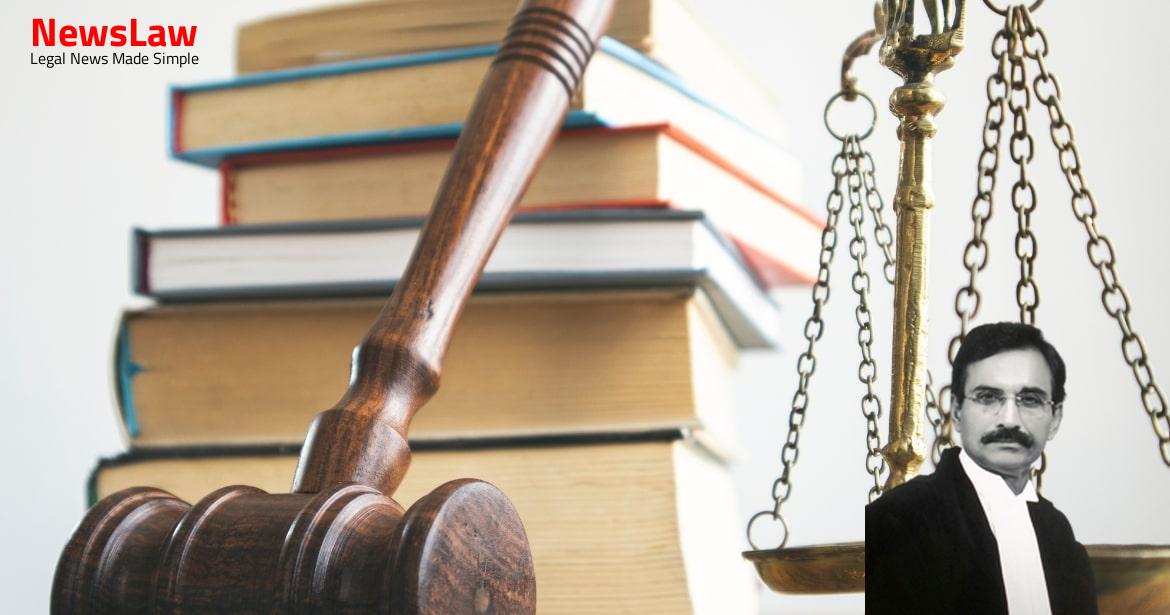Discover the detailed legal analysis of the case challenging the CBSE Examination Byelaws. The focus is on the Court’s thorough examination of the Byelaws, their implications on fundamental rights, and the determination of whether they classify as ‘law’ under the Constitution. The scrutiny also extends to the reasoning behind granting or rejecting requests for changes in certificates based on supporting documents and Byelaw interpretations.
Facts
- The case involves a batch of 22 petitions regarding correction/change in name/surname/date of birth of candidates or their parents in certificates issued by the Board.
- The High Court’s judgment dated 26.11.2019 in W.A. No 4077/2019 affirming the learned Single Judge’s order is being challenged.
- The Board’s denial of name change request is based on their Examination Byelaws of 2007 which restrict corrections/changes in certificates qualitatively and quantitatively.
- The petitions raise questions on the constitutional validity of CBSE Examination Byelaws and their interpretation.
- The respondent participated in the matriculation examination conducted by the Board in May 2016 and had made requests for changes in date of birth and name.
- The appellant Ms. Jigya Yadav challenged the decision of the Delhi High Court rejecting the prayer for correction of her parents’ names in marksheets issued by the Board.
- The appellant’s case was that her parents’ names were incorrectly recorded in the marksheets.
- The respondent’s request for a birth certificate with a corrected date of birth was rejected by the Board.
- The rejection indicates a prioritization of an individual’s natural characteristics over artificial/acquired characteristics.
- The High Court allowed the prayer for change of name by relying on Subin Mohammed
- The Board’s duty was considered to be not performed properly in denying the request for change of name
- The Court held that rules framed by CBSE contradict the basic principles of recognizing an individual’s identity from their parents
- Appellant relied on Byelaws 69.1(i) and 69.1(ii) to argue that change of name of parents is not envisaged in Byelaw 69.1(i)
- The appeal challenges the granting of a prayer for change in date of birth by the Kerala High Court
- The Court directed the Board to effect the change based on the Subin Mohammed case
- The request involved changing the mother’s name in CBSE certificates from ‘Seema Manak’ to ‘Sanyogeta Manak’
- The Board’s counsel cited Byelaws (amended in 2018) to emphasize the need for precautions in such changes to prevent misuse
- The High Court observed that corrections should not be allowed for ulterior or extraneous reasons
- The court noted that CBSE rules should not prohibit individuals from having their identity recognized through their parents
- The decision involved granting a prayer for change in date of birth in certificates issued by the Board
- Reliance was placed on subsequently obtained birth certificates and applicable Byelaws for ordering changes
- The High Court permitted changes only in bona fide cases where no prejudice is caused
Also Read: Legal Analysis on Diplomatic Immunity Exception Case
Issue
- Whether the CBSE Examination Byelaws have the force of law?
- Whether examination byelaws impose reasonable restrictions on the exercise of rights under Article 19 of the Constitution including fail the test of rationality for excessively restricting the scope of permissible corrections/changes?
- Whether the Board is obliged to carry out corrections/changes in the certificates issued by it owing to correction/updation of public records/documents which have statutory presumption of genuineness?
Also Read: Land Ownership Dispute Legal Analysis
Arguments
- The appellant has argued that the impugned judgment is in conflict with a previous judgment of a co-ordinate bench of the High Court in Mazhar Saleem Chandroth where a similar request for name addition was rejected, stating it would be inconsistent with the school record.
- The appellant contends that the court passed the order in ignorance of the byelaws and that neither Byelaw 69.1(i) nor 69.1(ii) applies to the case.
- The appellant argues that the CBSE has exceeded its powers by effecting the amendment, as it was not meant to have authority over such changes in student identities.
- The respondent’s plea for a mandatory injunction was barred by Specific Relief Act sections 41(g) and 41(i) regarding acquiescence of rights.
- The appellant cites the Board of Secondary Education of Assam vs. Md. Sarifuz Zaman to assert that corrections in certificates cannot be claimed as a legal right and frequent corrections may render the power arbitrary.
- The appellant highlights that CBSE certificates are public records carrying a presumption of genuineness, and Byelaw 69.1 after the 2007 amendment permits corrections only to align certificates with school records.
- The appellant challenges the High Court’s interpretation of Byelaws as ultra vires and asserts that the CBSE Byelaws, although not statutory, must bind participants in the Board’s examinations.
- The appellant questions the High Court’s reliance on birth and death certificates, stating they were not proven before a court of law to establish the name change.
- The appellant argues that the impugned judgment erred in connecting the case with caste-based reservations and displayed prejudice towards the appellant’s cause.
- The appellant contends that changes to certificates cannot be permitted in a routine manner as it would compromise the credibility of CBSE certificates and create anomalies in records.
- Respondent challenges the prohibitory Byelaws of the Board
- Argues that the Byelaws are not statutory and cannot be considered as ‘law’ under Article 19(2) of the Constitution
- Asserts that students should not be deprived of their fundamental right to express their identity under Article 19(1)(a)
- Cites Kabir Jaiswal vs Union of India & Ors. to support the argument
- Raises a conflict between Kalpana Thakur & Anr. vs Central Board of Secondary Education & Anr. and Vyshnav @ Vishnu Viswam V. vs Central Board of Secondary Education & Ors. regarding the relevant point of time for determining the applicability of Byelaws
Also Read: Legal Analysis: Forfeiture of Properties under the 1976 Act
Analysis
- The Byelaws existing on the date of application would apply, irrespective of amendment.
- A body entrusted with essential public functions cannot unduly put fetters on its powers.
- Public functions need not be the exclusive domain of the State.
- Reasonableness is essentially another word used for public policy.
- The exercise of discretion in a negative manner by a public authority would be arbitrary and unreasonable.
- Non-governmental bodies are just as capable of abusing their powers as the Government.
- Reasonableness is applied to each individual statute and no abstract standard can be laid down.
- Public functions include participation in social or economic affairs for the public benefit.
- There are no restrictions on the power of CBSE to permit change of name.
- Reasonableness is an expression used to convey the natural law ideal of ‘justice between man and man.’
- The CBSE is not required to adjudicate claims or verify their correctness
- The grounds for assailing the decision are similar to previous appeals and do not need to be repeated
- In exercising plenary jurisdiction, CBSE is directed to process applications for correction in certificates
- The exercise of jurisdiction under Article 226 of the Constitution is deemed necessary in these cases
- Appellant’s argument against the court’s intervention in academic matters is noted
- Article 1 of the Board states that examinations will be conducted at the secondary stage of education and other examinations as approved by the Controlling Authority or the Government of India.
- Article 4 designates the Secretary to the Government of India, Ministry of Education as the Controlling Authority of the Board.
- The CBSE Examination Byelaws encompass essential aspects such as admission, examination, migration, transfer, curriculum, fees, certificate issuance, and modifications.
- Article 13 of the Constitution of India deals with laws inconsistent with or in derogation of fundamental rights, stating that such laws shall be void to the extent of the inconsistency.
- The context of Article 13 clarifies that ‘law’ includes various legal instruments and ‘laws in force’ encompass laws existing before the Constitution’s commencement.
- Article 13 does not apply to amendments made under Article 368 of the Constitution.
- The School records allow for corrections to be made for typographical and other errors to align with the records, provided no changes were made after the submission of the examination application to the Board.
Decision
- The CBSE is directed to take immediate steps to amend its relevant Byelaws to incorporate a mechanism for recording corrections or changes in certificates.
- Several appeals have been made against decisions of the High Court of Kerala regarding changes in date of birth or name on certificates issued by the Board, based on the 2007 Byelaws.
- The High Court has granted these requests for changes in date of birth or name based on supporting documents and birth certificates.
- The appellant Board has challenged these decisions, citing the 2007 Examination Byelaws as the reason for rejecting the requests initially.
- The High Court’s decisions in these cases have been consistent in granting the requested changes.
- All pending and future applications for such requests are to be processed as per the conclusions and directions given in the previous paragraphs, until the relevant Byelaws are amended.
Case Title: JIGYA YADAV THRU HER FATHER Vs. C.B.S.E. (CENTRAL BOARD OF SECONDARY EDUCATION) . (2021 INSC 303)
Case Number: C.A. No.-003905-003905 / 2011



